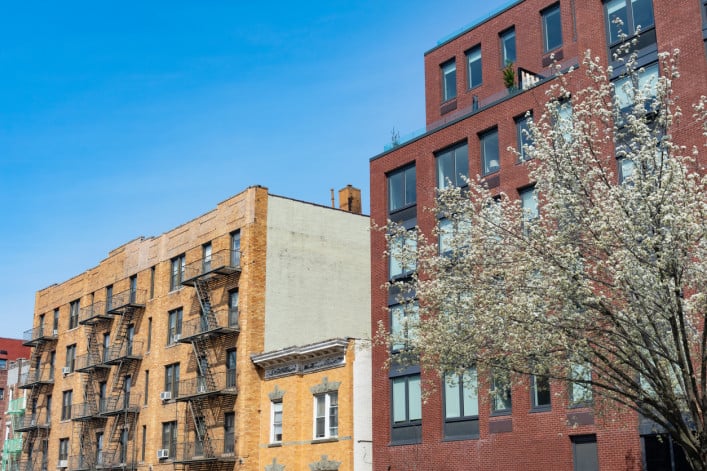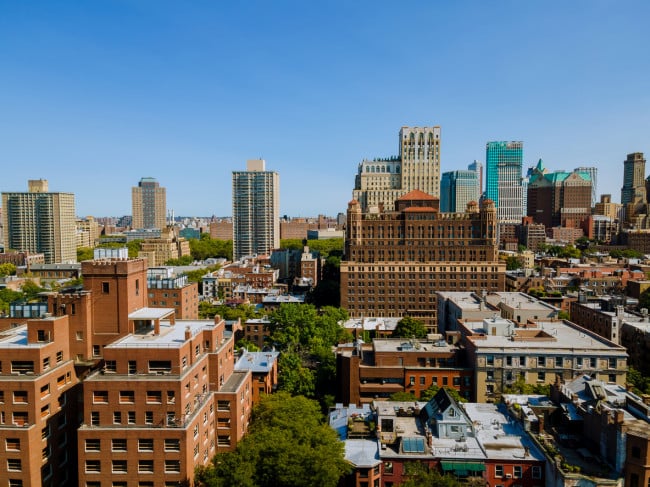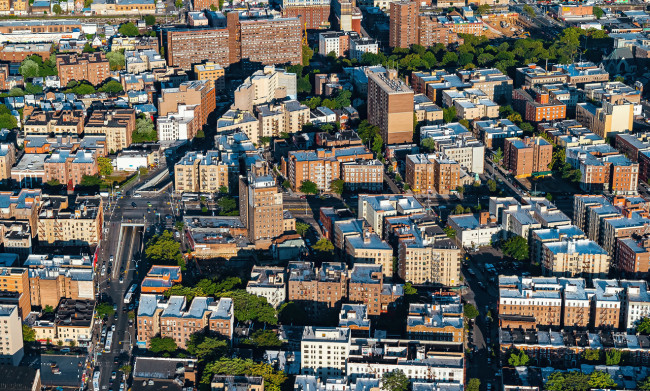Having trouble applying to NYC's affordable housing lottery? Housing Ambassadors can help

Community organizations and non-profits serve as guides to the affordable housing lottery process. They can help with applications, internet access, language services, and appeals.
iStock
Applying to New York City's affordable housing lottery can seem overwhelming, especially if you're in a precarious housing situation, have unreliable internet service, or need a translator.
Although the application process has been simplified over the past year and is largely done online via Housing Connect, it involves completing a digital profile, finding apartments that you are eligible for, figuring out if you can afford the rent, gathering relevant paperwork to prove your eligibility, and if necessary, appealing if you are rejected. It can be a lot to figure out on your own.
That's where the Housing Ambassadors come in: These are about 50 community and tenant organizations that can provide you with advice on how to navigate the housing lottery application process. How do you find them? They are listed by borough on the city's Department of Housing Preservation and Development website.
The organizations don't provide a shortcut to the lottery and how to use Housing Connect is just one area of their expertise among other tenant and community support services. Approximately 10,000 households consult with Housing Ambassadors each year—either directly or through educational events—as part of their search for housing. HPD provides training to these organizations and they can give support in more then 20 languages, including American Sign language.
"These well-established organizations have a deep bond with the communities they serve, while HPD’s Housing Ambassador Program enriches their ability to help people,” says William Fowler, HPD's deputy press secretary.
There's no guarantee that you'll be selected for an affordable apartment if you seek guidance from a Housing Ambassador, but you will get lots of help.
What the Housing Ambassadors can do for you
At Brooklyn Community Services, a Housing Ambassador, the goal is to strengthen communities impacted by systemic poverty. Martina Surrency, program director, says part of her job is to increase awareness about Housing Connect and assist with the application process. Registration requires two-factor authentication, which can be complicated if you're not computer savvy.
"You have to have an email and cell phone to receive a code, so that's where we do a lot of the help," Surrency says.
Similarly, at East Harlem Council for Community Improvement (another Housing Ambassador), housing counselor Efrain Rivera walks applicants through the process. He will remind you to pick a memorable password, help with two-factor authentication, and explain how to navigate the drop down menu to find your applications, documents, and account details.
"Anyone that comes here, I'm not going to spend 10 minutes with them, I'm going to spend upwards of an hour and I make sure they understand the process," Rivera says.
Since much of the process is online as a result of the pandemic, some people just need to meet face-to-face to make sense of the application. Housing Ambassadors can also print out paper applications for anyone wanting to submit to a specific lottery through the mail.
How income eligibility is calculated
Southside United HDFC-Los Sures has a mission to make sure those who were born and raised in North Brooklyn and the south part of Williamsburg are able to stay in their apartments. The housing non-profit is also designated as a Housing Ambassador.
Tenant organizer Lucas Renique says it's mainly internet access and language assistance that's needed by applicants. Residents are largely Spanish speaking and mostly seniors who don't have internet access. But the main barrier are the lottery's income requirements. "The rents are just too high," he says.
The eligible income bracket for the affordable housing lottery is calculated using the median income in the area (known as the AMI). The current AMI for New York City is $107,400 for a three-person family and apartments are offered through Housing Connect based on a percentage of the AMI, which varies by building. Many apartments are available for households with 130 percent of the AMI.
Renique says Los Sures works with those on the lowest ranges of AMI: Seniors on social security where the average annual income ranges from $9,000 to 12,000. He also works with a lot of single parents and immigrant families making minimum wage or less, which is under $30,000.
"We cannot provide true assistance because the rents that are offered on the affordable housing lottery are just way too high and the community members that we serve just don’t qualify," Renique says.
How many people actually win apartments
Sayief Leshaw is program director at Stonewall Community Development Corporation, another Housing Ambassador and an organization that helps LGBTQ+ older adults.
"Part of what we do is manage expectations," he says. He cites the income limits as well as the fact that there just isn't enough affordable housing relative to the number of people applying as "a huge source of frustration." He calculates the organization manages to get between five and seven people a year into apartments through Housing Connect. "A horrible number," he says.
Most Housing Ambassadors are committed to serving people who have lived in the same neighborhood all their lives. Renique says recently a 12-unit development came up via Housing Connect in Williamsburg with a AMI range that could have helped members of his community.
"I must have helped 40 or 50 people apply for that and none of them got it because thousands of people apply from the whole city," he says. "It’s a sheer luck-based system."
Rivera estimates his organization helps five or six people get affordable housing via the lottery each year and says part of his work is to give people a reality check.
"Don't expect that once you register you are going to be called for an apartment—that's not going to happen," he says.
What to do after you apply
East Harlem Council for Community Improvement periodically offers educational events for the neighborhood and Rivera has a guide to registering a Housing Connect account. At Brooklyn Community Services, Surrency recently ran a workshop walking people through the lottery. She also has first-hand experience of the process and knows where you can get tripped up.
For example, she recommends keeping your inbox clear and checking your spam so you don't miss any important emails. Surrency missed out on an eligibility letter on a unit she really wanted because she wasn't checking her emails and missed a deadline.
If you're selected you'll need to provide documents to support your eligibility. So if you have more than one source of income, make sure to show it, she says. It's better to give them more than they need rather than less or you risk being rejected because of incomplete information.
Another tip: If you are applying based on a disability, make sure your condition meets the criteria for apartments set aside for this use. For example, there are degrees of visual impairment and if you apply based on this, you may need to prove you need an apartment wired with support features like audio alarms and other assistive technology.
The additional supporting documents you will need
Another area of support is to help you find alternative documents if you are selected.
"For almost every document that is required, there are alternative documents that can be provided," Leshaw says. For example, you will typically have to provide a lease from your current landlord. But if you are facing housing insecurity, how do you provide this? Housing Ambassadors can help.
"You can get a notarized affidavit from the person you are living with and provide bank statements to show what your rental contribution has been—ticking all the boxes through a more labor intensive and complicated provision of documents with the support of people who can explain exactly what you need to do," Leshaw says.
If you are doubled up with a relative in a NYCHA building, Rivera suggests you get a letter from the tenant saying you are a guest in the apartment until you are able to get yourself a place.
How to appeal a housing lottery rejection
For Leshaw at Stonewall, the area where his organization can have the biggest impact is when it comes to appeals, he says. For example, four of the successful applicants helped by Stonewall in the past year were incorrectly rejected at first by marketing agents (who have a handbook of policies and procedures to follow during the selection process).
"We are familiar with challenging marketing agents' determinations," he says, adding that in most cases any error is immediately corrected.
This really comes into play with nuanced and atypical situations when an application doesn't involve the more straightforward provision of a W-2 and a current lease. Leshaw cites an example of a full-time student, who is also a child who grew up in foster care, so they are exempt from the exclusion of full-time students. "It's a finer point in the lower income housing tax credit handbook and a lot of marketing agents are not familiar with that section," he says. There's a short window for appeals so getting help during this part of the process can be invaluable.
Do you have first-person advice to share about the affordable housing lottery? Drop us an email. We respect all requests for anonymity.
You Might Also Like



























